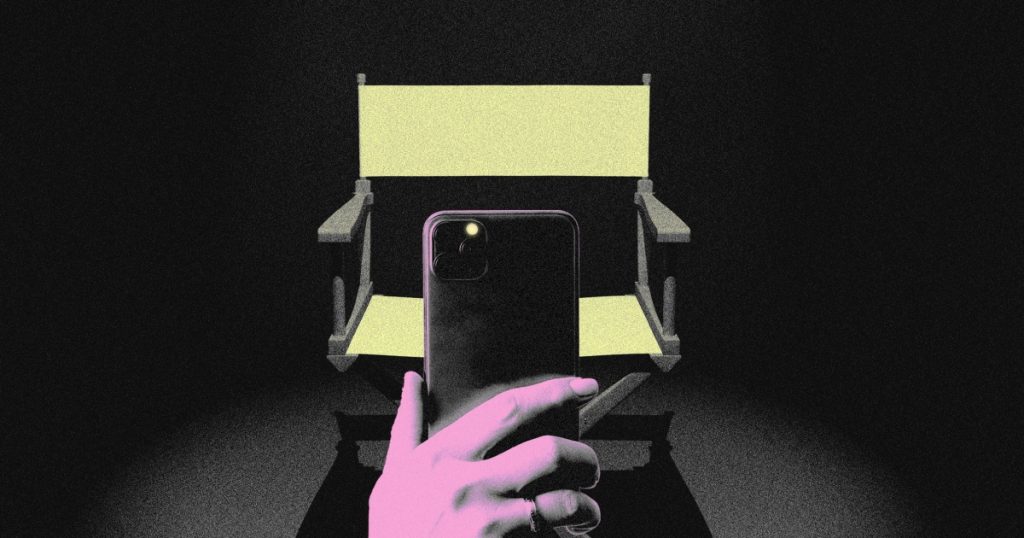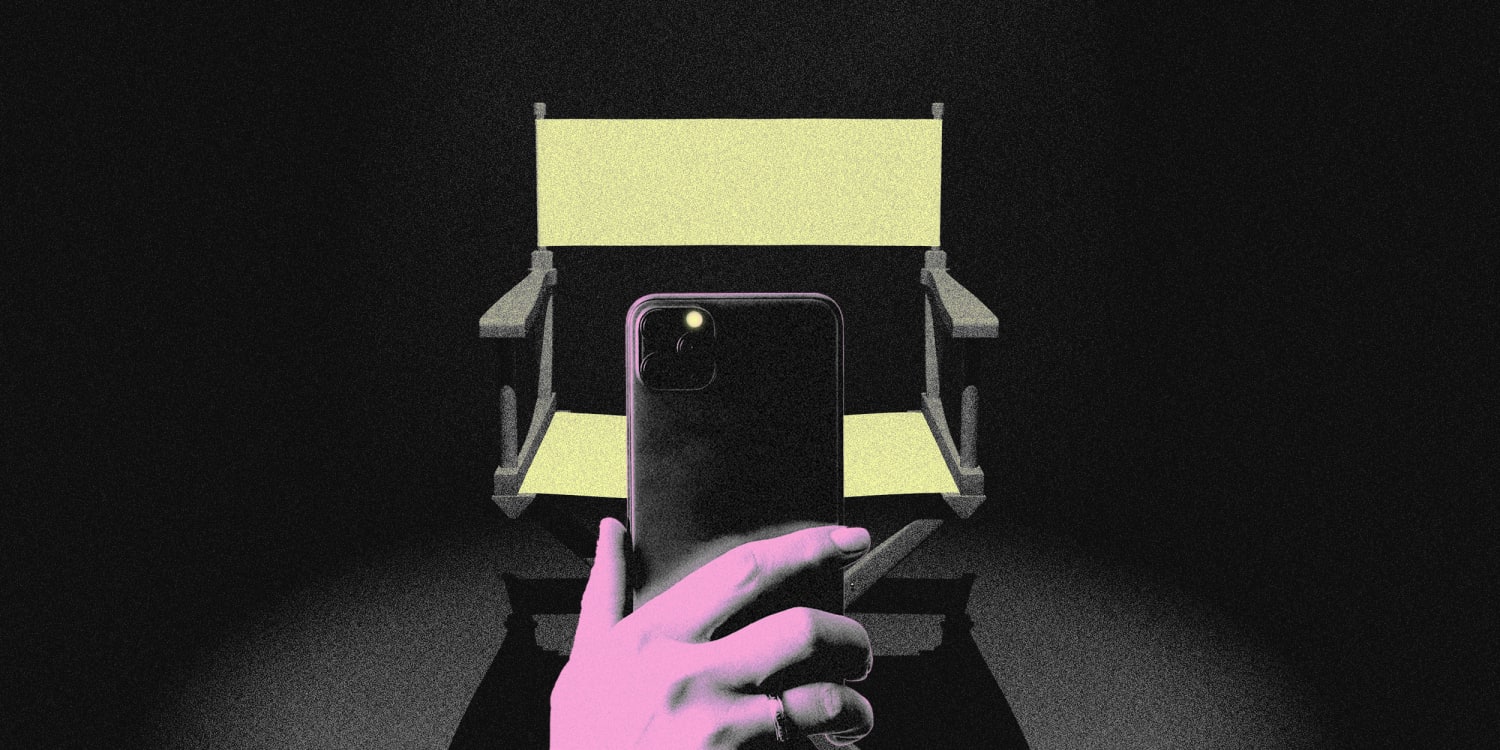

ANAHEIM, Calif. — As VidCon has matured in recent years, so too have its attendees.
This year the annual conference — for creators, fans and industry execs — brought together the likes of Hollywood A-list star Keke Palmer and YouTube Minecraft streamer Dream. It also featured such panels as “The New Era of Celebrity” and “Stream to Mainstream: Hollywood’s New Rules of Engagement.”
Online content — often dismissed as less impressive or serious than traditional media — is proving to be an unignorable force in entertainment as the lines between digital, film and TV continue to blur.
“I mean, this in the nicest way,” Ian Hecox, co-founder of OG YouTube comedy channel Smosh, said. VidCon has “gone from weirdos to entrepreneurs.”
Young people have increasingly turned to online video for entertainment. During the pandemic lockdown in 2020, digital content on platforms like YouTube and TikTok dominated, which experts at VidCon said helped propel digital media as a serious form of entertainment.
“We’re not on a journey anymore,” said Amber Tarshis, chief marketing officer at creator economy startup Jellysmack. “The moment has arrived. Digital-first talent are the power players today.”
With everyone at home, audiences ran out of new shows to watch on TV or stream, but creators kept people entertained with fresh content everyday.
The moment has arrived. Digital-first talent are the power players today.
-Amber Tarshis, chief marketing officer at creator economy startup Jellysmack
“It really drove people into watching creators, not as a hobby thing but as another linear option,” said Joe Gagliese, CEO of Viral Nation, an influencer marketing and talent management company.
Gagliese said that when he co-founded Viral Nation in 2014, many creators believed that the next step in their careers had to be crossing over to mainstream media.
But creators are no longer just using social media as a jumping off point for bigger stardom. Instead, online content is the end goal. Over the years, content creation has become a serious and feasible career option for many.
“They all thought that the natural evolution of being a creator was becoming a celebrity,” Gagliese said. “As the years went on, and some of them made the crossover and realized, ‘I gotta go work a 13-hour day for 1,200 bucks and they don’t care who I am.’ … So they realize that like, that’s a whole different grind than what they’re used to.”
The transition from digital to mainstream media has not always been smooth, partly because executives have tried to force traditional growth models onto new-age talent. In general, the relationship between digital talent and the Hollywood executives who invest in them has been fraught in the past. Creators felt many people coming from the traditional entertainment industry didn’t “get” the internet.
Hecox and Anthony Padilla, co-creators of Smosh, can attest to this. The duo, who recently reunited after splitting up in 2017 to buy the brand back, has experienced the different phases and investments in the creator space since the two started their channel in 2005.
“They had a lot of institutional knowledge from how things worked in a traditional space,” Hecox said of the first executives who tapped into digital. “It wasn’t really one for one when it came to digital. So there’s just a lot of stuff that just wasn’t very productive in the digital space. It’s a very different world. It’s a lot less money.”
The directive from some executives Smosh worked with, Padilla said, was to incorporate different elements into its YouTube videos because they believed it would “help the overall business.” Hecox said that toward the end of his and Padilla’s initial partnership, they gave priority to production quality in a way their audience didn’t like.
“We had strayed too far away from digital and we started looking more like TV, and I think people didn’t connect with that,” Hecox said.
Padilla and Hecox now own their brand and have creative control over it. Instead of stretching themselves thin to fit a traditional mold, they’ve redirected their focus to their roots and what fans liked the best.
The entertainment industry has gradually improved its handling of digital creators, according to Jade Sherman, head of digital at A3 Artists Agency. Sherman said in the early days some agencies treated digital as “the ugly stepchild” of the industry.
Now “people aren’t trying to fit digital talent into a traditional kind of medium and then just dropping them and saying good luck,” she said.
“They’re really trying to figure out, why should we be working with this creator in this kind of format? What makes it more impactful? What makes it different than what they’re already doing? And the truth is, sometimes maybe that’s not an option.”
Alan Chikin Chow, who is represented by A3, started his career as an actor but pivoted his focus to social media content, which has led to him becoming the most-viewed YouTube Shorts creator with a dedicated fanbase. While he still takes on traditional projects, he said YouTube has allowed him to create comedy and tell stories on his own terms.
“I think the thing that is really exciting about being a creator is you have the power to create your own brand, create your own voice, and really distill what it is that you want to say, without having to kind of fit into the narrative of somebody else’s project,” he said.
Traditional stars are increasingly seeing the value of digital content. Superstars like Dwayne “The Rock” Johnson and Will Smith have made successful and popular online content for years. Now people like Palmer and former Disney Channel actor Christy Carlson Romano are building digital-first media companies because of the creative freedom and reach they can achieve with that.
Romano said she wished she’d started making online content sooner, because it has allowed her to control her image, narrative and creative pursuits. She also said that she identifies as a content creator rather than a celebrity these days.
“It’s as if you were your own network,” Romano said. “I didn’t need to wait for anybody anymore, and I would be the only person benefiting from my efforts. So it’s very, very empowering.”
While creators and industry insiders are optimistic about the future of digital media, some say there’s still a lot of work to be done.
“Anything that becomes the main thing has problems,” Gagliese, of Viral Nation, said. “So I think you’ll see a lot of growing pains … but if you can make it through the growing pains, and you can find that kind of steady space,” this industry, he said, “is going to become a monster.”

 Latest Breaking News Online News Portal
Latest Breaking News Online News Portal




